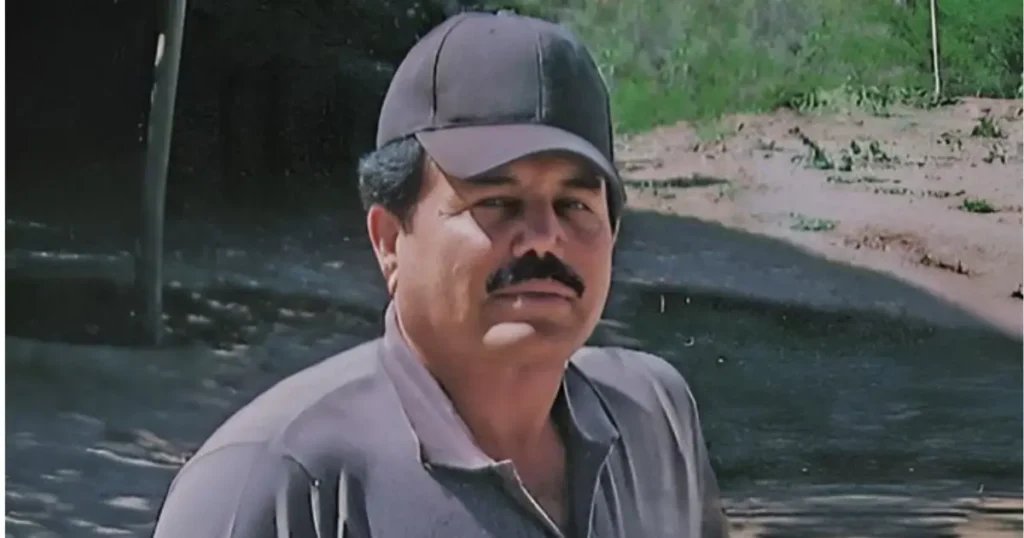Ismael ‘El Mayo’ Zambada, Sinaloa Cartel Leader, Arrested in High-Stakes Operation

In a significant development in the fight against drug trafficking, US federal agents have captured Ismael “El Mayo” Zambada, a co-founder and influential leader of the Sinaloa cartel.
He was apprehended in El Paso, Texas, alongside Joaquin Guzman Lopez, the son of his former partner Joaquin “El Chapo” Guzman. This arrest is seen as a major victory in the US’s ongoing battle against the opioid crisis and transnational drug trafficking.
On Thursday, US authorities executed a carefully planned sting operation that successfully lured Zambada onto a private plane. Believing he was headed to inspect clandestine airfields in Mexico, Zambada landed in El Paso, Texas, where he was immediately taken into custody.
Guzman Lopez played a pivotal role in the operation, allegedly deceiving Zambada. Fox News reports that Guzman Lopez turned on him, holding him responsible for his father’s capture.
His capture is a notable achievement for US law enforcement, given his decades-long influence and ability to evade capture. Alongside El Chapo, he co-founded the Sinaloa cartel in the late 1980s after the Guadalajara cartel collapsed.
Known for his strategic and low-profile approach, Zambada maintained significant control over the cartel’s operations while avoiding the limelight. Despite El Chapo’s more prominent public profile, many considered Zambada the true leader of the Sinaloa cartel.
The US Drug Enforcement Administration (DEA) had placed a $15 million bounty on Zambada, highlighting the importance of his arrest. During El Chapo’s 2019 trial, defense lawyers emphasized his significant role, claiming he had bribed numerous Mexican officials to evade prosecution.
As the plane touched down in El Paso, a tense silence filled the cabin.
According to sources close to the operation, he looked puzzled as he glanced out the window.
“This doesn’t look like Mexico,” he reportedly muttered. Guzman Lopez, maintaining his composure, reassured him, “Don’t worry, we’re just making a quick stop.” Moments later, heavily armed federal agents stormed the plane.
“Ismael Zambada, you’re under arrest,” an agent declared, breaking the silence.
Zambada, caught off guard, exclaimed, “What is this? What have you done?” Guzman Lopez, standing behind the agents, responded coldly, “It’s over, Mayo. This is for my father.”
The arrest of Zambada and Guzman Lopez is expected to cause upheaval within the Sinaloa cartel and potentially the broader Mexican criminal landscape. Zambada was known for his old-school methods, focusing on the business side of trafficking, while El Chapo’s sons, including Guzman Lopez, have been more violent and flashy. This generational divide could lead to internal power struggles and increased violence as younger leaders vie for control.
The Sinaloa cartel has been a major supplier of fentanyl to the US, a synthetic opioid significantly more potent than heroin. Fentanyl has been a key contributor to the opioid crisis in the US, becoming the leading cause of death for Americans aged 18 to 45.
Attorney General Merrick Garland underscored the significance of these arrests, affirming the Justice Department’s commitment to holding cartel leaders accountable for their role in this epidemic.
The operation was a collaborative effort involving Homeland Security Investigations, the FBI, and other US law enforcement agencies. FBI Director Chris Wray and DEA Administrator Anne Milgram praised the arrests as crucial steps in dismantling one of the world’s most powerful and violent drug trafficking organizations.
While Zambada’s arrest is a major victory for law enforcement, it is unlikely to dismantle the Sinaloa cartel entirely. Historically, the capture of major cartel leaders has led to violent power vacuums and infighting, both within the cartel and with rival organizations. Vanda Felbab-Brown, a researcher at the Brookings Institution, noted the potential for increased violence as a result of these arrests.
Nevertheless, the capture of Zambada and Guzman Lopez deals a substantial blow to the Sinaloa cartel’s leadership and operations. As US authorities continue their efforts to combat the trafficking of fentanyl and other narcotics, these arrests serve as a reminder of the relentless pursuit of justice against those responsible for devastating communities across the nation.